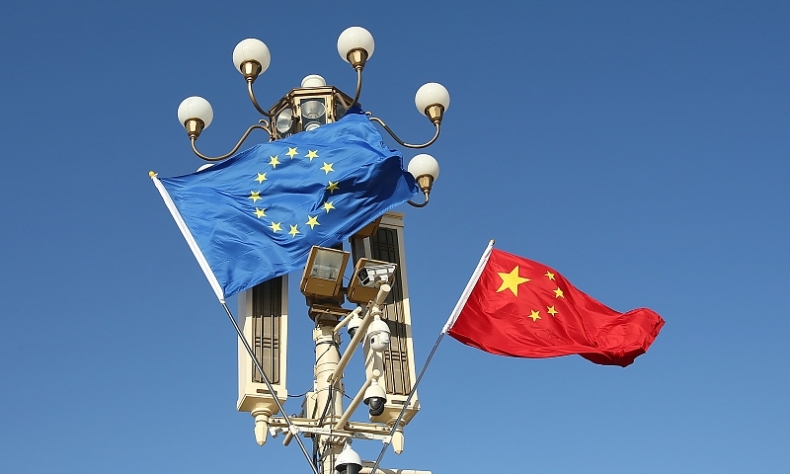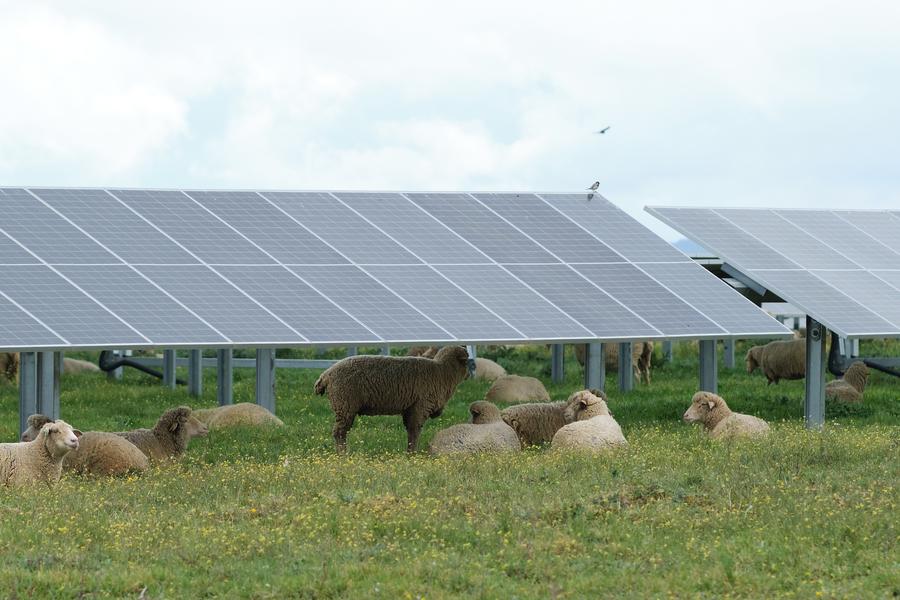Forging a Sustainable Future: China-EU Partnership Tackles Global Challenges Head-On

The re-enforcing EU-China cooperation will be particularly important in the coming years, especially if the recent turbulence in international relations continues.
Chinese President Xi Jinping is currently paying a state visit to Europe, which included a milestone France-EU-China trilateral at the grand Elysee Palace on Monday. Global environmental issues such as climate change and biodiversity are high on the agenda for President Xi and his counterparts, French President Macron and President of European Commission von der Leyen.
President von der Leyen, in her opening remarks at the joint trilateral meeting, emphasize that “China is important for the European Union”, especially in relation to our “joint fight against climate change and our determination to protect biodiversity and implement ocean governance”. She specifically commended China for its leadership role in reaching the Kunming-Montreal Global Biodiversity Framework (GBF).
For his part, President Xi stressed that China-EU cooperation is “in essence complementary and mutually beneficial”, and that the two sides have extensive common interests and broad space for cooperation in green and digital transition.
As the energy and climate transition progresses, listening to and learning from each other will be extremely important. The transition is urgent for both Europe and China to avoid the worst impacts of climate change. Therefore, we need to be open to building on each other’s strengths as much as possible, in order not to slow the transition.
Key technologies, including renewable energy, energy storage, new energy vehicles and low-carbon industrial processes, need to get cheaper over time. That will be facilitated if we can find ways in which the energy transition is both quick, and provides economic benefits to all countries. For these key technologies, we need to make efforts to ensure that value and jobs are created across borders. That’s far more likely to happen through engagement and cooperation, than it is if we isolate.

In order to realize these opportunities, both sides need to re-double efforts to listen to the views, and at times concerns, of the other side. The complex issues of ‘over-capacity’ and competitiveness, while sometimes over-simplified in public commentary, often reflect real underlying concerns regarding whether the economic transition is ‘just’. And while there are times that it can make sense to protect domestic industry, in order to bolster supply chain security, there are also risks to over-reaction. Approaches that restrict cost-effective supply chains make the transition more expensive overall. These are costs that are felt across society.
In China, things can move quickly. The economy has been developing at an unprecedented pace for over four decades now. So, when new economic opportunities arise, like the development of renewable energy, new energy vehicles and new ways of doing business that generate value while protecting the environment, China can pursue those faster than most countries in the world.
China has already played a critical role in Europe’s energy transition. Many European countries have reaped the benefits of green energy collaboration with China in recent years. The cost reductions achieved through technology application domestically within China have made it easier for other countries, including in Europe, to apply those technologies in their own countries at scale. And vice versa, China has closely followed how Europe has developed green policies, such as carbon pricing, and taken lessons for its own system.
In recent years, the realization of the Kunming-Montreal GBF represents a shining light for EU-China cooperation. The two sides engaged closely in the lead-up to UN’s COP15 for the Convention on Biodiversity. The mutual trust created prior to the negotiations meant that there were fewer difficult topics to discuss at the conference itself. Since the GBF, the two sides have begun to discuss how to support each other in implementing the GBF targets.
This engagement has parallels in climate diplomacy, where the two sides have established regular dialogues on environment and climate both at leader level and at ministerial level. By talking often, there are fewer surprises when negotiators meet in-person at the annual COPs. With the next EU-China High-level Environment and Climate Dialogue of leaders expected soon, there will be opportunities for deepening the substance of bilateral communication and engagement.
This is especially important coming out of several years of online meetings due to pandemic travel restrictions. Both sides should endeavour to make the most of the opportunity to meet in person, which history has shown to be far more successful at realizing substantive agreement.

Building on the successful work on climate and biodiversity, there are a plethora of issues where it is in the interests of both the EU and China to cooperate. To name just a few, this includes cooperation on the circular economy, including managing plastic waste and battery recycling, reforming the way in which we manage chemical pollution, as well as further encouraging the development of green financial flows.
EU-China engagement on environment and climate has been a consistent and strong demonstration of international engagement value over many years. This in turn can create greater confidence in the direction of travel globally. That is, while there will be bumps along the road, all countries can be clear-eyed regarding the need to head towards net zero in order to survive and thrive in the 21st century.
The EU’s far-sighted ‘Green Deal’, which seeks to radically shift the European economy towards a climate- and nature-friendly economy is one example of global leadership. China’s ‘dual carbon’ goals, together with the recent substantive targets attached to the conceptual frameworks of a “Beautiful China” and the realization of an “ecological civilization”, are equally providing an important signal to the international community that even in difficult times, a green economic agenda is a strong and sensible strategy for the 21st century.
The re-enforcing EU-China cooperation will be particularly important in the coming years, especially if the recent turbulence in international relations continues. Europe and China working together can show that cooperation between major trading partners, and between developed and developing countries can deliver real and significant outcomes when addressing global challenges.
The author is climate and energy specialist at the environmental law organization ClientEarth.
The article reflects the author’s opinions, and not necessarily the views of China Focus.
 Facebook
Facebook
 Twitter
Twitter
 Linkedin
Linkedin
 Google +
Google +










